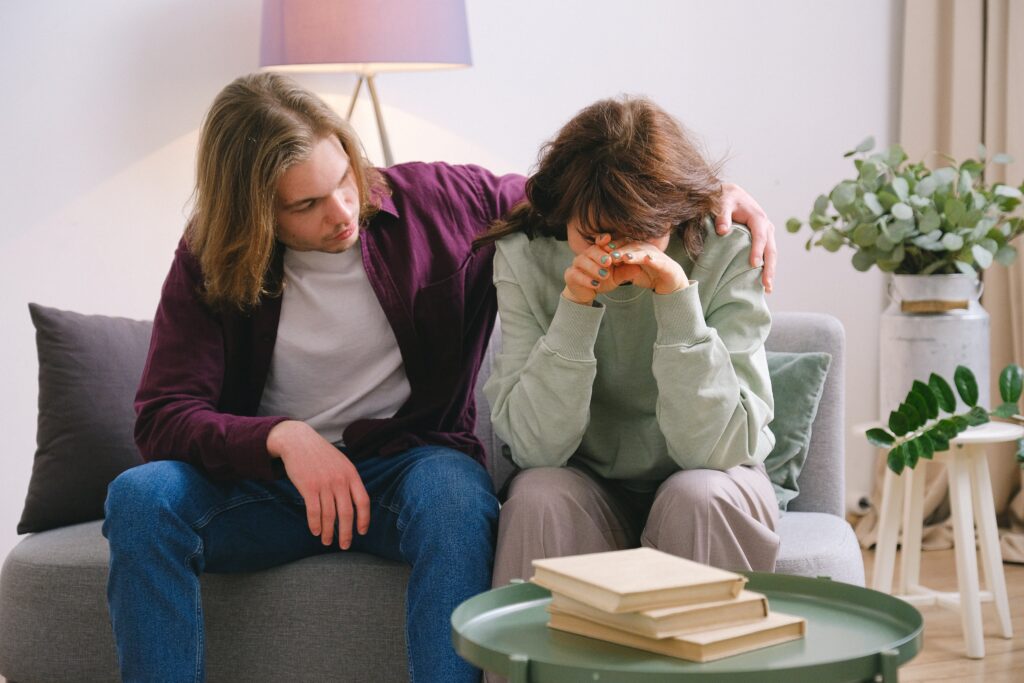5 Signs You Might Be in Survival Mode (and 4 Tips to Shake It Off!)

Hey, Psych2Goers! We’re happy to see you again!
Are you struggling to get through your week, then when the weekend comes, you don’t feel like you got any rest? Are your responsibilities piling up, and you’re not sure how to get back on track? This could be a sign that you’re living in survival mode. Harvard Medical School tells us survival mode is our brain’s response when it perceives there is danger around us, even if nothing is happening. Survival mode can also tell us when we’re ignoring our brain’s cry for help for too long.
Being someone that tends to ignore my own warning signs, I’ve made it a point to learn how to identify survival mode, and I’ve done some research to come up with ways to shake myself out of the rut. In this article, we’re going to explore five signs you could be in survival mode and four tips to get out!

#1: You’re skipping out on pieces of your daily routine.
Everyone has their own little routine to make their day easier or throw in some self-care. Maybe you take a morning walk to get the day started, you get places 15 minutes early to settle in, you eat lunch outside, or maybe an evening work-out session to wind down from the day. Me, I do a yoga session every morning before starting work. Someone who’s living in survival mode may not keep up with these rituals. Every once in a while, that’s absolutely okay! However, if you’re skipping out on pieces of your daily routine, arriving places late, or not showing up all together for most days, this could be a sign of survival mode.

#2: You’re not able to focus on yourself.
Whether it’s meeting your basic needs, like bathing, eating, or drinking enough water, or making sure you get your self-care in, survival mode makes it difficult to do anything extra that isn’t absolutely necessary. Survival mode makes us anxious, irritable, and uses up all of our energy to protect us from whatever danger our brain thinks is coming. Since all of our energy is taken up preparing for this “danger” coming, nothing is left for our basic needs which leaves us in a rut. My warning sign is not drinking water. I continue working on whatever I’m doing until my mouth is totally dry, then I wonder why I don’t feel well. Once I put two and two together, I make sure to put a little more focus on myself to keep myself out of survival mode!

#3: You go with the flow… but in a bad way.
We’ve all heard of the “fight or flight” response. When your brain perceives danger, this is how your body responds. But did you know that there are two other responses that can come from the sense of danger? “Freeze” and “submit” are two other danger responses that can be brought on by survival mode. Say your bully comes up to you and demands you to give them your last cookie. If you choose “freeze”, you might just sit there in shock, too stunned to do or say anything. If you “submit”, you may just give them the cookie. If you’re choosing to “freeze”, not do anything, or “submit”, do what you’re told, instead of making decisions for yourself, this might be a sign of survival mode.

#4: You get anxious with similar types of events.
When someone has been through a traumatic event, it can definitely trigger survival mode. Going through a similar situation or being reminded of that past trauma can do the same thing, even if nothing is actually happening. I had lived with a narcissistic parent until moving to college and never realized I had experienced trauma. Any time I’d hear them walking through the house, I’d listen to their steps and get nervous that they’d come into my room. Now, when I hear my significant other walking around the house, I feel that same anxiety. Consistent heightened anxiety that puts you in a long period of survival mode around of event could be related to Post-Traumatic Stress Disorder (PTSD). If this sounds familiar or you relate to this point, please reach out to a mental health provider to discuss your experience.

And #5: You’re exhausted but aren’t sure why.
When you’re in survival mode, all of your energy is spent on your thoughts and physical symptoms telling you you’re in danger. Even though you might not have left your bed all day, you feel like you just ran a marathon. There are days where I’ll go to work for a normal 8 hour day and fall asleep by 9 PM. The next day, I’ll wake up at 7 AM and be tired enough to go back to sleep by 9 AM. This will repeat, for me, for a couple days back to back! This might be your body telling you your brain is in survival mode and needs help coping with something going on.
Okay, we know what survival mode is and how to identify if we’re in survival mode. Now, how do we get out of the funk? Here are some things to try next time you feel your anxiety creeping up.

Tip #1: Stop and breathe.
If you begin to notice that you’re anxious or your heart is beating a little too fast when nothing is happening, stop everything. My favorite breathing technique is called the 4-7-8 Technique. Breathe in through your nose while counting to four in your head, hold it while you count to seven, then let it out through your mouth while making a “whoosh” sound for an eight count. Repeat until you feel it’s good to stop.

Tip #2: Do a check-in on yourself. How am I doing?
Survival mode tells to do what we need to make it through the day, and nothing more. Like we mentioned earlier, this is where a lot of our basic needs get ignored. Take a moment to do a self-check-in. Did I get a good night’s sleep? Have I eaten? Drank any water today? Am I sad? Angry? Frustrated? Once you’ve figured out what you need, take a moment and DO IT!! Grab a snack, take a nap, drink some water. Then, you can continue with whatever you were doing.

Tip #3: Get up and move!
It doesn’t matter how big or how little the movement is. If you can take a walk around the neighborhood or do a quick gym sesh, awesome! Maybe doing a short yoga or tai chi flow feels good. Maybe you need something more gentle. Stand up and let your arms swing from side to side freely for a moment. Put on the Macarena and dance to it (my personal favorite since you don’t have to think about it). Whatever it is, this physical movement can help deepen breathing and relax your muscles to help your body realize it’s not in danger, and you’re okay.

Tip #4: Ask for help when you need it.
If you feel you aren’t able to manage your anxiety or symptoms on your own, reach out to your mental health provider. They are they best source of accurate diagnosis information and treatment plans, if needed. If you feel you can’t go directly to a provider, ask a trusted friend or family member. They can help to keep you company, maybe help get things back on track, or they may be able to help set appointments with a mental health provider or even go with you.
Being in a constant state of anxiety is scary and exhausting! I hope this article helps you to identify some signs of survival mode and gives you some helpful tips to help bring some balance back to your day. Thanks for reading, and keep your eye on Psi for more Psych2Go content! Be well!
Want more information on Survival Mode? Check out our video 6 Signs You’re in Survival Mode, Not Lazy.
The references and studies used to form this article are referenced below. The information in this article is meant solely for informational purposes and is not meant to attack or diagnose anyone. If you related to any of the points in this article, please be sure to contact a trusted medical professional.
Der, V. (2014). The body keeps the score: brain, mind, and body in the healing of trauma. Viking.
Harvard Health Publishing. (2018, August 1). Protect your brain from stress – Harvard Health. Harvard Health; Harvard Health. https://www.health.harvard.edu/mind-and-mood/protect-your-brain-from-stress
Harvard Health Publishing. (2020). Understanding the stress response. Harvard Health; Harvard Health. https://www.health.harvard.edu/staying-healthy/understanding-the-stress-response
Stuck in Survival Mode: Insights into Turning Down Your Stress Level. (2014, November 6). UConn Today. https://today.uconn.edu/2014/11/stuck-in-survival-mode-insights-into-turning-down-your-stress-level/
Why Survival Mode Isn’t the Best Way to Live. (n.d.). Psychology Today. https://www.psychologytoday.com/us/blog/lifting-the-veil-trauma/202006/why-survival-mode-isnt-the-best-way-live



Responses